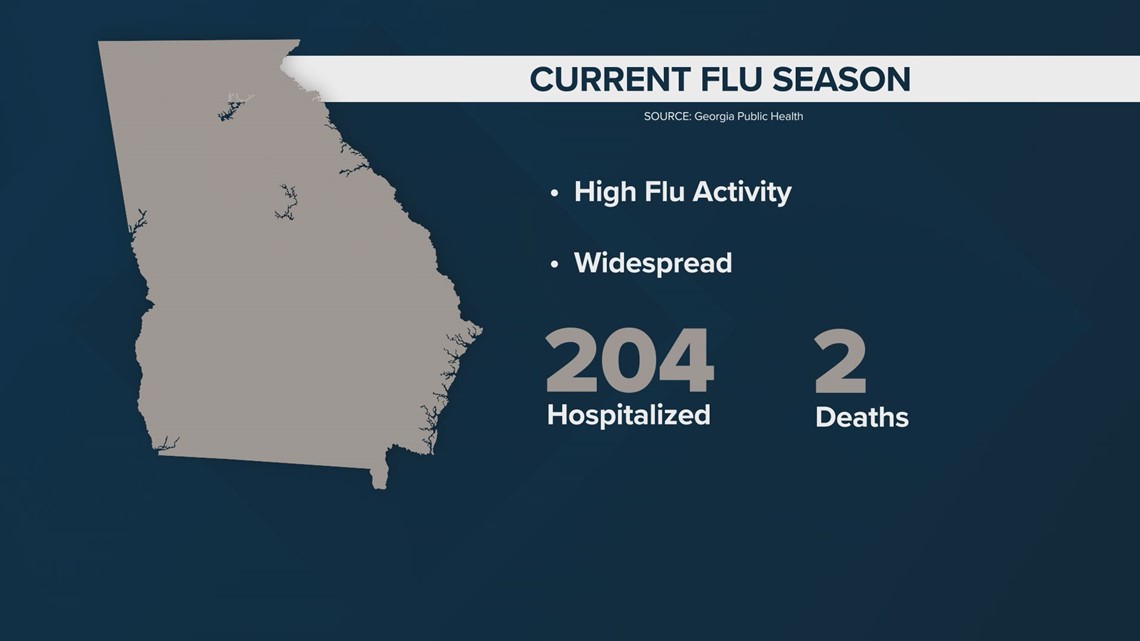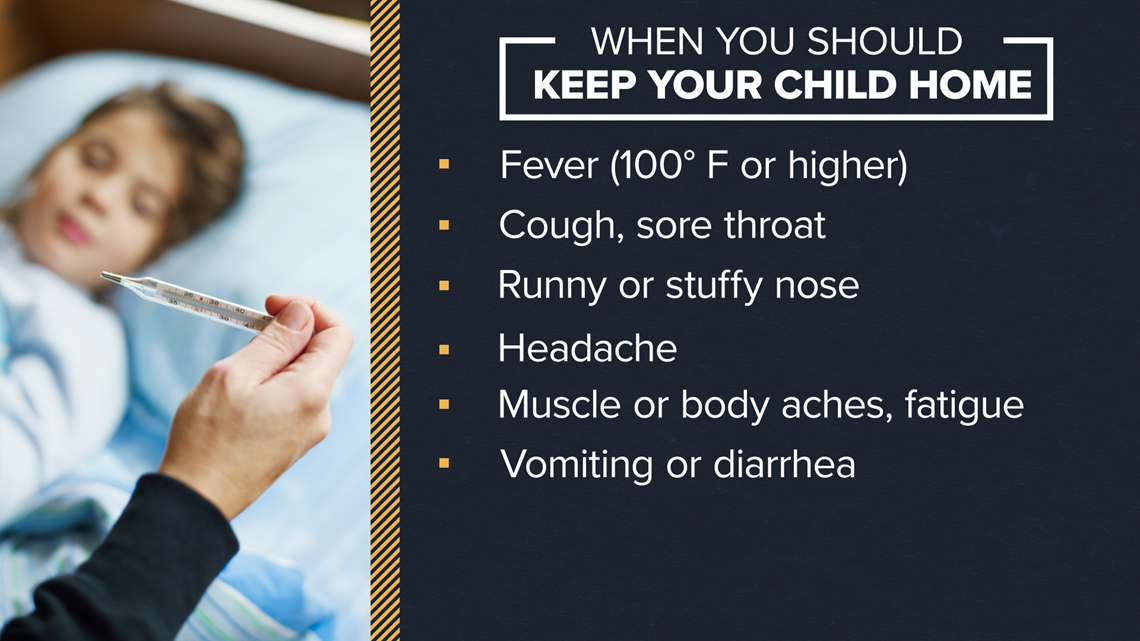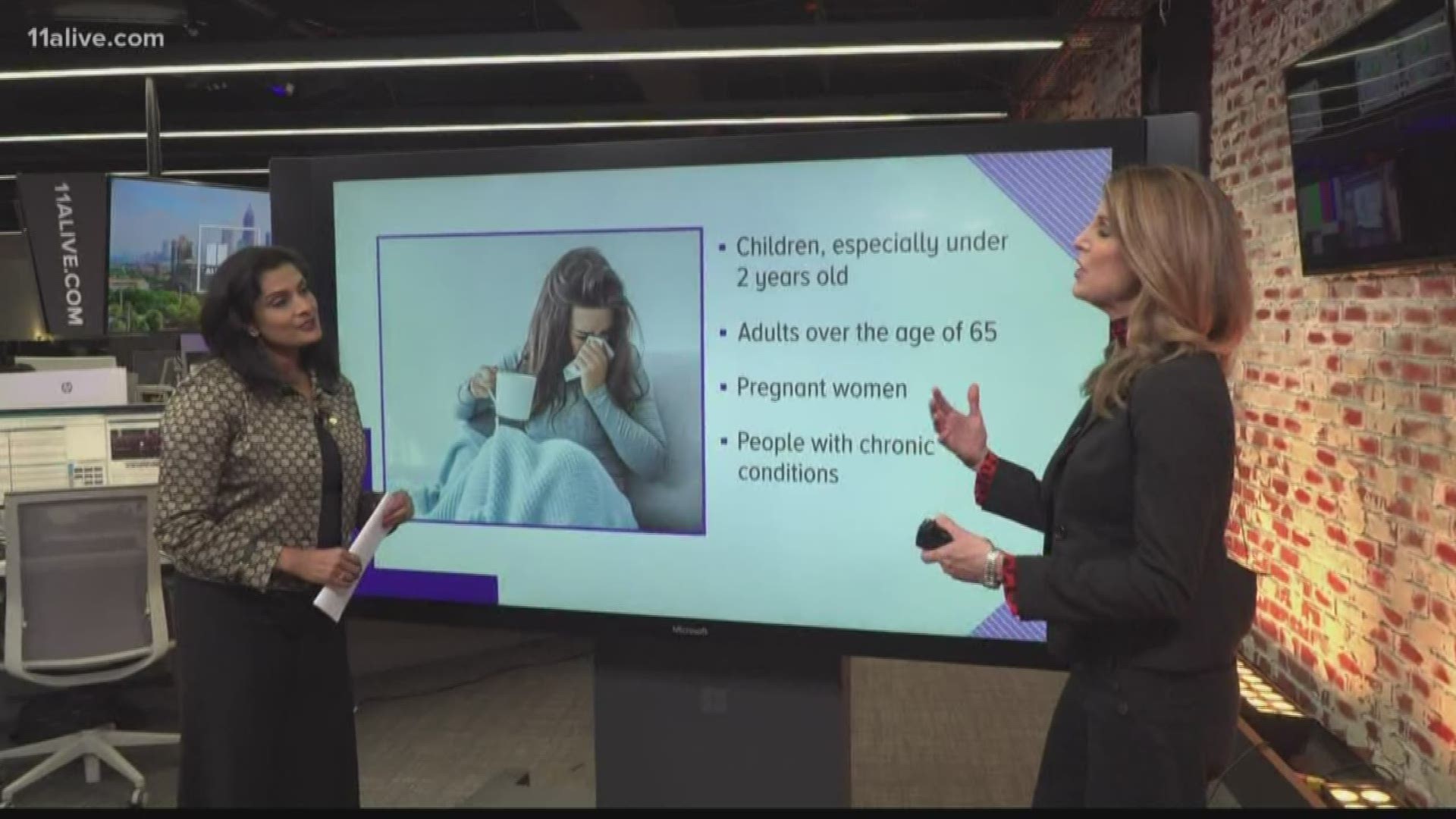ATLANTA — The Georgia Department of Public Health confirms that there are now two confirmed deaths linked to the flu.
The most recent death was confirmed in the Health Department's weekly flu report.
According to the report, the patient who died is believed to be between the ages of 18 and 49 years old.
Health officials already confirmed the first flu-related death in Georgia last week amid widespread flu activity in the state. That patient was a person older than 65 years old.
The winter flu season in the US is on track for its earliest start in more than 15 years. The last flu season to hit this early was in 2003-2004.
Nationwide, the Centers for Disease Control and Prevention (CDC) estimates that there have been at least 2.6 million flu-related illnesses and 1,300 deaths from the flu so far this season, but health officials said the Deep South has been hardest hit.
More than a dozen flu outbreaks have been confirmed in Georgia since late September, and the Georgia Department of Public Health has confirmed more than 200 hospitalizations


One local school in Fayette County has already been hard-hit by the flu - roughly 100 students were absent this week as staff confirmed 38 flu cases at the school.
But, officials say there is a chance the early start to the flu season means it could peak much earlier than normal.
Signs and symptoms of the flu to watch for:
- Fever (100 degrees F or greater), however, not everyone will have a fever.
- Cough
- Sore throat
- Headache
- Runny or stuffy nose
- Muscle or body aches
- Fatigue (very tired)
- Some people may have vomiting and diarrhea, though this is more common in children than adults


How to prevent the spread of the flu:
- Frequent and thorough hand-washing with soap and warm water. Alcohol-based gels are the next best thing if you don’t have access to soap and water.
- Cough or sneeze into the crook of your elbow or arm to help prevent the spread of the flu.
- Avoid touching your face as flu germs can get into the body through mucus membranes of the nose, mouth and eyes.
- If you are sick, stay home from school or work. Flu sufferers should be free of a fever, without the use of a fever reducer, for at least 24 hours before returning to school or work.
- If you are caring for a sick individual at home, keep them away from common areas of the house and other people as much as possible.
RELATED

